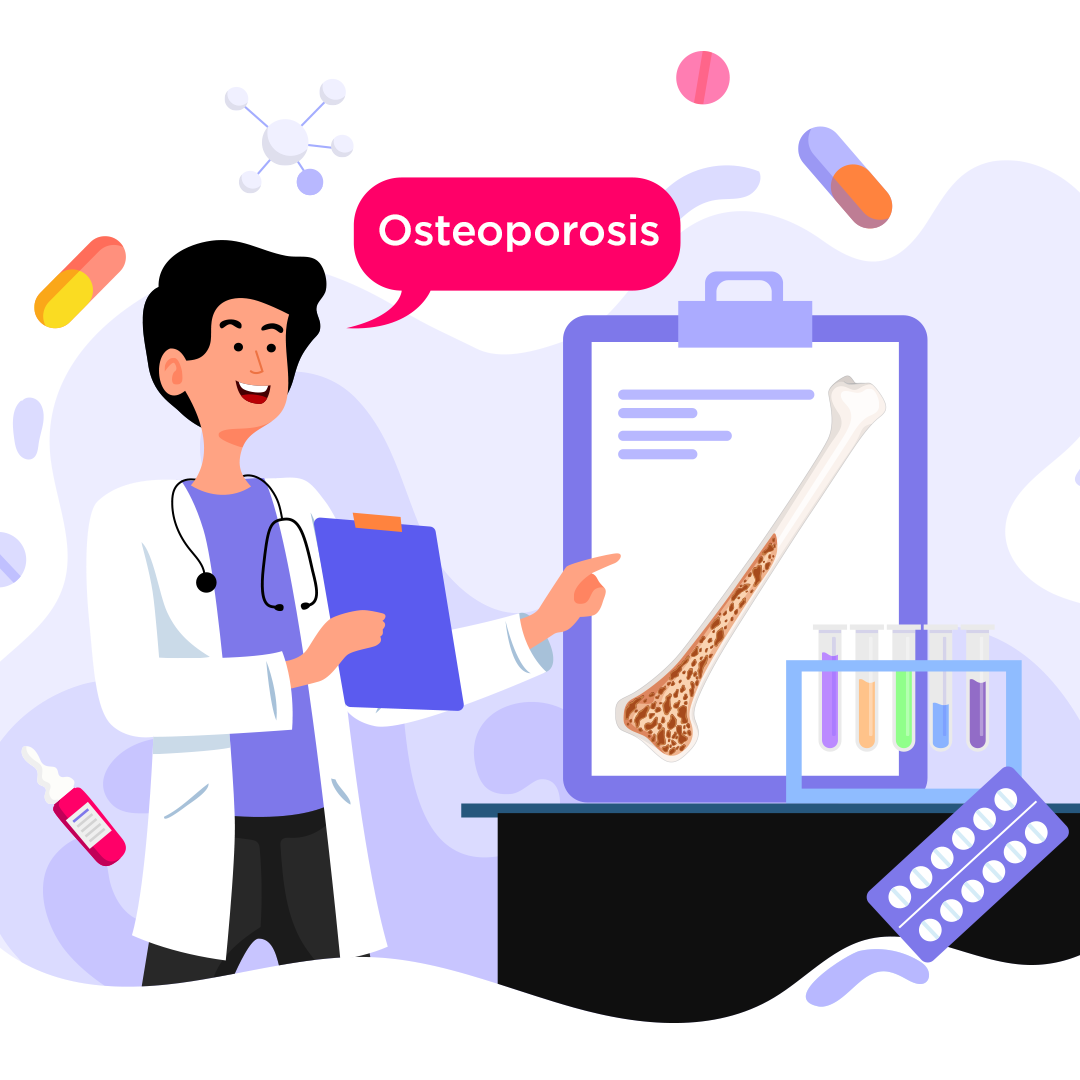Protecting Your Bone Health: Vital Tests to Prevent Osteoporosis

Learn essential tests and lifestyle advice to avoid osteoporosis and maintain strong bones. Take control of your health with a healthy diet and staying active!
As we experience the highs and lows of life, taking care of our bone health is very important for staying healthy overall. Our bones naturally lose calcium and strength as we age, making them more prone to conditions like osteoporosis.
This can lead to weaker bones and a higher risk of fractures. Osteoporosis is a serious issue that is often not noticed until a bone is broken, impacting our mobility and quality of life.
Nevertheless, taking action early can have a big impact. Getting bone density tests regularly is important for preventing osteoporosis and helps people take proactive steps to protect their bones.
This blog guides you through the ins and outs of bone health and iterates how to prevent osteoporosis.
What is Osteoporosis?
In simple words, osteoporosis is a medical condition that depletes bone power while also increasing the likelihood of recurrent fractures. Moreover, as bones lose calcium and become more porous, they can easily crack from falls or even minor accidents.
Additionally, many risk factors add to a person developing osteoporosis, including age. And you must note that females over 50 are especially at an increased risk due to hormonal shifts post-menopause.
Besides, family history of bone-related issues and genetics also play a considerable role. Remaining well-versed with these factors is imperative in addressing bone health before problems become severe, highlighting the need for preventative steps like regular testing and lifestyle changes.
Importance of Bone Density Tests
You can schedule a bone density test, also called a DEXA scan, regularly to check the strength of your bones. It is a fast and painless procedure that uses a low-dose X-ray to measure bone mass, known as BMD, and provides a useful evaluation of bone health.
Moreover, if you are someone who has crossed 50 years of age, have a genetic history of osteoporosis, or have had fractures after age 50, it is crucial to talk to your healthcare professional about getting a bone density test for further evaluation and diagnosis.
Moreover, having an early check-up can detect issues and avoid potential fractures later on. If the examination reveals low bone density, your doctor might advise lifestyle adjustments and dietary changes or suggest bone-strengthening supplements.
Taking the initiative to care for your bone health can decrease the risk of fractures and enable you to maintain a vibrant and healthy lifestyle as you age.
Diet for Strong Bones
Eating a balanced diet is important for keeping bones healthy. Vitamins for bone health, like vitamin D and vitamin K, are essential.
Vitamin D, which you can get from the sun, helps your body absorb calcium well. At the same time, vitamin K in leafy greens like spinach and kale helps bone health.
It is essential to include these vitamins and minerals in your daily meals. Yogurt, fortified cereals, and fatty fish like salmon are excellent sources of these vitamins.
However, some people might have difficulty getting all the nutrients they require. In such circumstances, contacting a healthcare provider about bone health supplements can be advantageous to ensure adequate intake of these vital nutrients, eventually strengthening your bones for the future.
Lifestyle Tips to Prevent Osteoporosis
Eating healthy and living a healthy lifestyle is important in preventing osteoporosis. Bone-strengthening exercises, such as walking and weightlifting, can maintain the body's health and strength.
Equally important is avoiding harmful habits. Smoking and extreme alcohol consumption can further degrade bone health. Hence, making mindful choices to cut down on these habits can have a favorable influence on bone health. Also, incorporating exercise into your daily routine and adopting healthier habits empowers your bones to thrive.
Conclusion
In summary, bone health is a comprehensive process. It requires regular bone density tests, attention to a diet with sufficient nutrients, and an active physical lifestyle.
Maintaining strong bones can dramatically lower the risk of osteoporosis and its related complications as one age. One must also consider integrating vital vitamins for bone health and lifestyle shifts that increase bone strength.
Remember, your bones support you throughout life; nurturing them today can lead to a healthier, more active tomorrow. Start focusing on your bone health now, and empower yourself to live life to the fullest!
At Bharosa, your experiences have the power to transform healthcare. By sharing your journey, you contribute to a community where every patient’s voice is heard. You can help promote a culture of improvement and accountability among healthcare providers.
